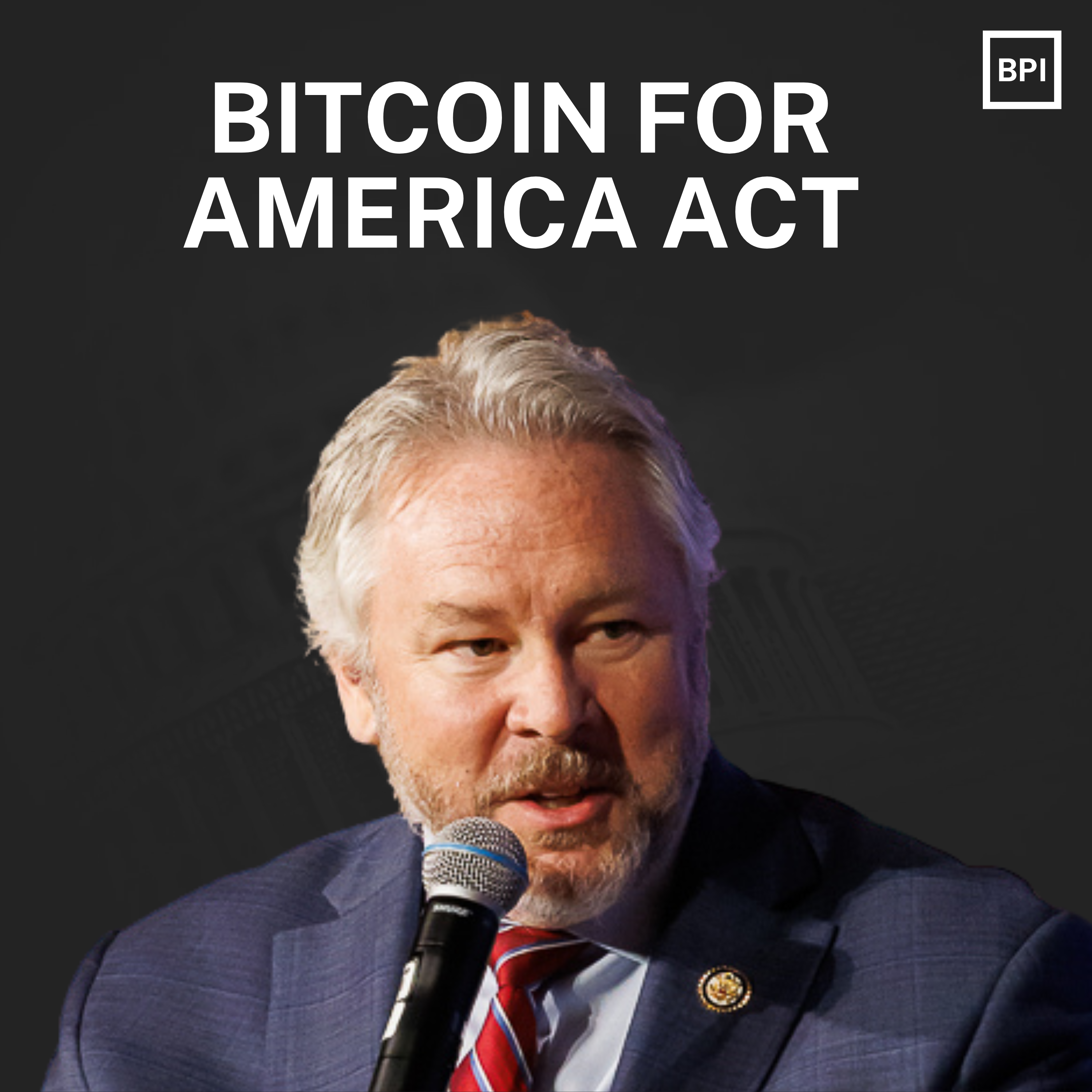Meet the Fellows: William Luther
Learn more about BPI Senior Fellow Will Luther in the latest installment of our Meet the Fellows series.

Introduction
We've been supporting academics and researchers who study Bitcoin since BPI's inception in January of 2022. To date, BPI has awarded fellowships to 15 individuals. In this blog post series, Meet the Fellows, we sat down with BPI Senior Fellow William Luther to learn more about his work and how he began researching Bitcoin.
Dr. William J. Luther is an assistant professor of economics at Florida Atlantic University. He is the director of the American Institute for Economic Research’s Sound Money Project and an adjunct scholar with the Cato Institute’s Center for Monetary and Financial Alternatives. Luther’s research focuses primarily on questions of currency acceptance and the role governments play in determining commonly accepted media of exchange.
An internationally renowned expert on cryptocurrencies, Luther’s research has been cited by major media outlets, including NPR, Wall Street Journal, TIME Magazine, Fox Nation, Politico, VICE News, Washington Examiner, the Christian Science Monitor, and New Scientist. The Social Science Research Network currently ranks him in the top five percent of business authors. He has published articles in leading scholarly journals, including Economic Inquiry, Public Choice, Journal of Institutional Economics, and Quarterly Review of Economics and Finance. Luther earned his MA and PhD in economics at George Mason University and his BA in economics at Capital University.
Interview
How did you become interested in researching Bitcoin?
I first learned about bitcoin in May 2010. I was a graduate student at the time and my dissertation advisor, Larry White, ran a workshop where those of us interested in money and financial markets would present what we were working on. Larry is a bitcoin OG. He and his student George Selgin were discussing the prospects for something like bitcoin with Hal Finney, Nick Szabo, and others in the mid-1990s.
One of my colleagues, Chuck Moulton, had heard about bitcoin and presented a paper on it at the workshop. There were not very many people talking about bitcoin in early 2010. I was just kind of lucky to be in the right place at the right time and, as a result, I learned about bitcoin before most people.
A couple years later, Eli Dourado would ask me to write a paper on bitcoin for the Mercatus Center. I had just finished up my first semester teaching at Kenyon College, and one of my students had written a paper on bitcoin for the honors seminar in monetary economics I was teaching. I decided to write the paper for Mercatus and co-author the paper with my student.
At the time, it was a bit of a gamble. There wasn't really a market for work on bitcoin in economics. I wasn't sure that I would be able to publish the papers---let alone publish them well. And I really needed to publish well to keep my job. But I rolled the dice and---fortunately for me---it worked out.
In November 2013, the price of bitcoin shot up to $1000. Suddenly, all of the major media outlets wanted to talk to an expert about bitcoin and there weren't many. I think there were only four academic papers related to bitcoin on the Social Science Research Network at the time: one by Reuben Grinberg, one by George Selgin, and the two I had written (one co-authored with my student). At that point, it was pretty clear that I should keep writing about bitcoin. So that's what I did!
How have your views on Bitcoin and cryptocurrency broadly changed over time?
I was initially a skeptic. I thought it was interesting. I just didn't think it would gain widespread acceptance. As a monetary economist, I understood the challenge posed by network effects. The decision to use an item as money is not like the decision to consume a hamburger or go for a hike. I don't care who else is eating hamburgers. I don't care how many other people are hiking. But, with money, I care a lot about who else is using it---the size and composition of the network. If no one else is using an item as money, that item won't be very useful as money to me. Network effects make it very difficult to launch a new money, even if that new money is better than the old money people are already using. So I staked out a moderate position early on: Maybe bitcoin would take off. Maybe it wouldn't. But if it doesn't take off, that doesn't necessarily mean it is inferior to other monies.
In the time since, the bitcoin network has grown much bigger than I had initially anticipated. And, as it has grown, I have had to revise my view. It's not a complete reversal, or anything like that. I'm not one of these guys who will confidently tell you that we will only use bitcoin in the future; that all other monies will go to zero. I think that's nonsense. But I am much more confident in the future of bitcoin than I was a decade ago.
What misconception about Bitcoin do you hear most from your colleagues?
I think most American academics---and maybe most Americans---think bitcoin is only used by criminals and tax cheats. They don't appreciate the real struggles other people around the world face when deciding how to make transactions---and how bitcoin might be better than their available alternatives.
What misconception about Bitcoin or the subject of your research do you hear most from Bitcoin enthusiasts?
I think many bitcoiners---maybe most bitcoiners---are primarily interested in it because they think the price will rise and they will become fantastically wealthy. That's certainly a possibility. But they don't really have a good theory to explain why they think that will happen. They think they do! They point to rainbow charts. They invoke battery metaphors. They talk about the fixed supply. But, at the end of the day, they don't have a good demand-side explanation---and that is what is ultimately required. And I think they don't have a good demand-side explanation because they don't really care about bitcoin for making transactions. It's all about the store of value role for them. They fail to appreciate that bitcoin is only likely to be a good store of value if it is primarily a medium of exchange.
What are your hopes for the future of BPI?
I am very bullish on BPI. The team is no-nonsense and they have put together an excellent team of people who think seriously about bitcoin. There are a lot of bad arguments out there---on both sides---and BPI is well positioned to address those arguments, so that people can make informed decisions about whether and how to use bitcoin and policymakers can understand what it is, how it works, and what risks are real and imagined when drafting laws and regulations pertaining to bitcoin. In terms of developing serious scholarship related to bitcoin, I think BPI is our best hope.
Lightning Round
Favorite novel?
The Martian
Favorite U.S. President?
Hard pass.
Who is your biggest intellectual influence?
F.A. Hayek



.svg)
.png)


.png)
%20copy%205.png)
